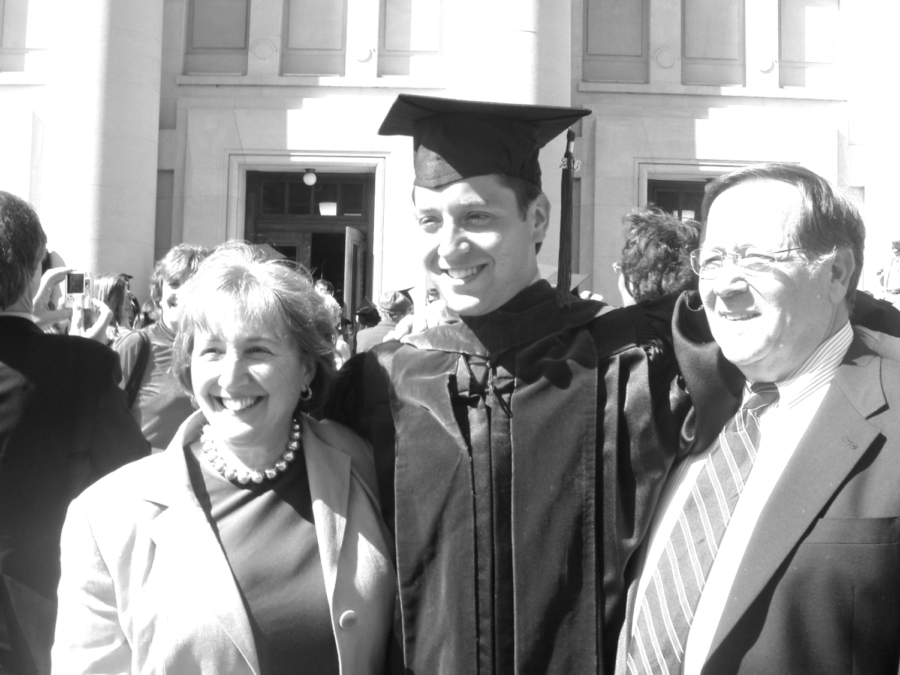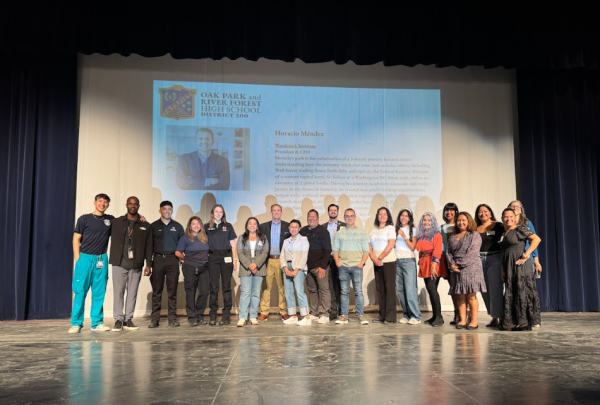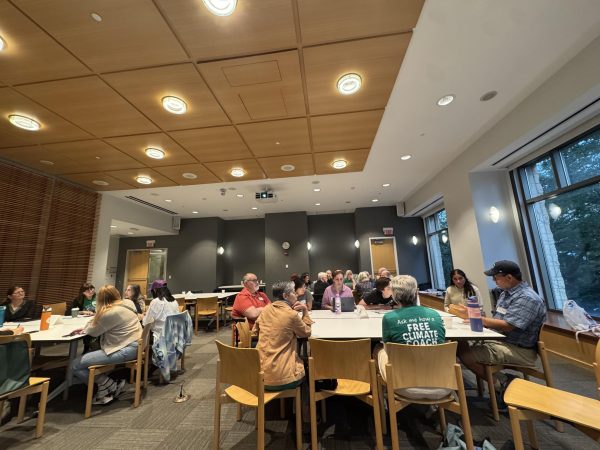Hildner, Mertz, Wolman: Attorneys at school
Daniel Wolman entered the room, prepared to present the work he had spent countless hours on. He had collaborated with colleagues to pull evidence, craft an argument, and think on his feet. Starting promptly at 8 am, Wolman was ready to deliver a cogent presentation before hostile witnesses, stubborn jurors, and biased judges. Students filed in and sat down, waiting for him to begin. As he scanned the classroom, he knew it might be hard to convince those before him. Some days were frustrating, but most days were amazing. Either way, he stood with the chance to inspire and make a difference in someone’s life.
“I was fascinated by the ubiquity of law. The study of law touches every aspect of modern society. It’s unparalleled in that way to be involved with something so pervasive,” said Wolman, who worked as a commercial litigator before making the switch to education. He described his out of state move as the “perfect storm” catalyzing his career change. “I started coaching and teaching and I fell in love with it,” he said. “I decided I was ready to make a dramatic career change so I got a degree in education.”
Two other former lawyers roam the halls of OPRF. Richard Mertz and Jacob Hildner both worked as lawyers at large firms before finding fulfillment in the OPRF history department. They all expressed how there are more similarities between law and education than differences. “Everything I thought I would be doing as a lawyer, I do now as a teacher,” said Mertz.
Mertz described his decision to attend law school as one of “peer pressure.” “I had six friends who were applying and I ended up going to the same school as four of them,” he said. After working for three years at a large firm he found the job to be “too driven by profit and too stressful.” Mertz has been a teacher at OPRF for 25 years and stands by the notion that he could never be a lawyer. However, Mertz found law school to be intellectually stimulating as it gave him a chance to hone the skills he uses every day as a teacher. “I get to be intellectual, help people, and take them on journeys, but there is no profit motive and I love that,” he said.
While Hildner, Mertz, and Wolman all agree that law school taught them an invaluable skill set, they emphasized that they get to use those skills in a job that allows tremendously more freedom. The three of them expressed they have fallen in love with teaching and would never go back to their old jobs.
Hildner had a similar track to Wolman. He worked in business litigation before his mother, a former teacher at OPRF, held an “intervention” at Buzz Cafe in Oak Park where she introduced him to Wolman.
Hildner knew he disliked the business side of law, but what he did like was the way is converged all of his academic passions. “You learn to make an argument that is strong and persuasive. You are kind of a professional writer,” he said. “You are writing five paragraph essays and constructing arguments every day.” However, he said, “there is this whole other side to it: you have to get business and market the firm. I’ve never been attracted to that money aspect of the business.”
Mertz’s favorite part about being a lawyer, he joked, was meeting his wife “and nothing else.” While he has future plans to do legal aid post-retirement, he remembers feeling like a failure when he quit law. “I had a sense that I wanted to be in politics… but I was not passionate about law.” Looking back, he realized, “You don’t know if a job is the right fit until you do it.”
AAll three former lawyers turned teachers agreed that their study of law has allowed them to be better teachers. “You learn to make strong arguments and think clearly. It helped me develop a lot of my skills,” said Hildner. Wolman seconded that: “Law school teaches you to think like a lawyer, and that can be applied to any environment. I learned about myself and what makes me tick, but I also realized it wasn’t enough to create the life I wanted to live.”
Hildner agreed. “People used to ask, ‘Why would you become a teacher? Why would you step down?’ But I would say it’s not a step down at all. When I tell my law friends I’m a teacher, they are jealous.”
Mertz shared a similar experience when he attended his 30th year law school reunion and found his former classmates were jealous of his teaching career. Wolman could sympathize with that sentiment. “Students think you are making all this money and are in the courtroom all the time, but that’s the finale of years of work. Most of it is reading and writing.”
Wolman said teaching offers a human dynamic that law didn’t. “You can’t be good at this without being human. In a law firm, you can be the best researcher and not talk to anybody. But teaching is so human every day.” They have all found the history department and their colleagues within it to be a large source of this dynamic.
“I’m lucky to be surrounded by people that love the content and love their jobs. They have inspired me to be better every day,” said Mertz.
“I was spending so much time, but it wasn’t my time,” Wolman said. “It was dictated by someone else. I spend just as much time in my teaching career, but it’s all by choice. Now I have more time to.”
When asked if they would return to law, they all laughed and responded with a resounding no. While Mertz has plans to do legal aid, he expressed that he would never want to perform for a profit again. As Wolman put it, “Every day as a teacher is not a wild success, but it is a chance to inspire young people to do something amazing with their lives. To do that every day and have an impact on a teen is rare.”






